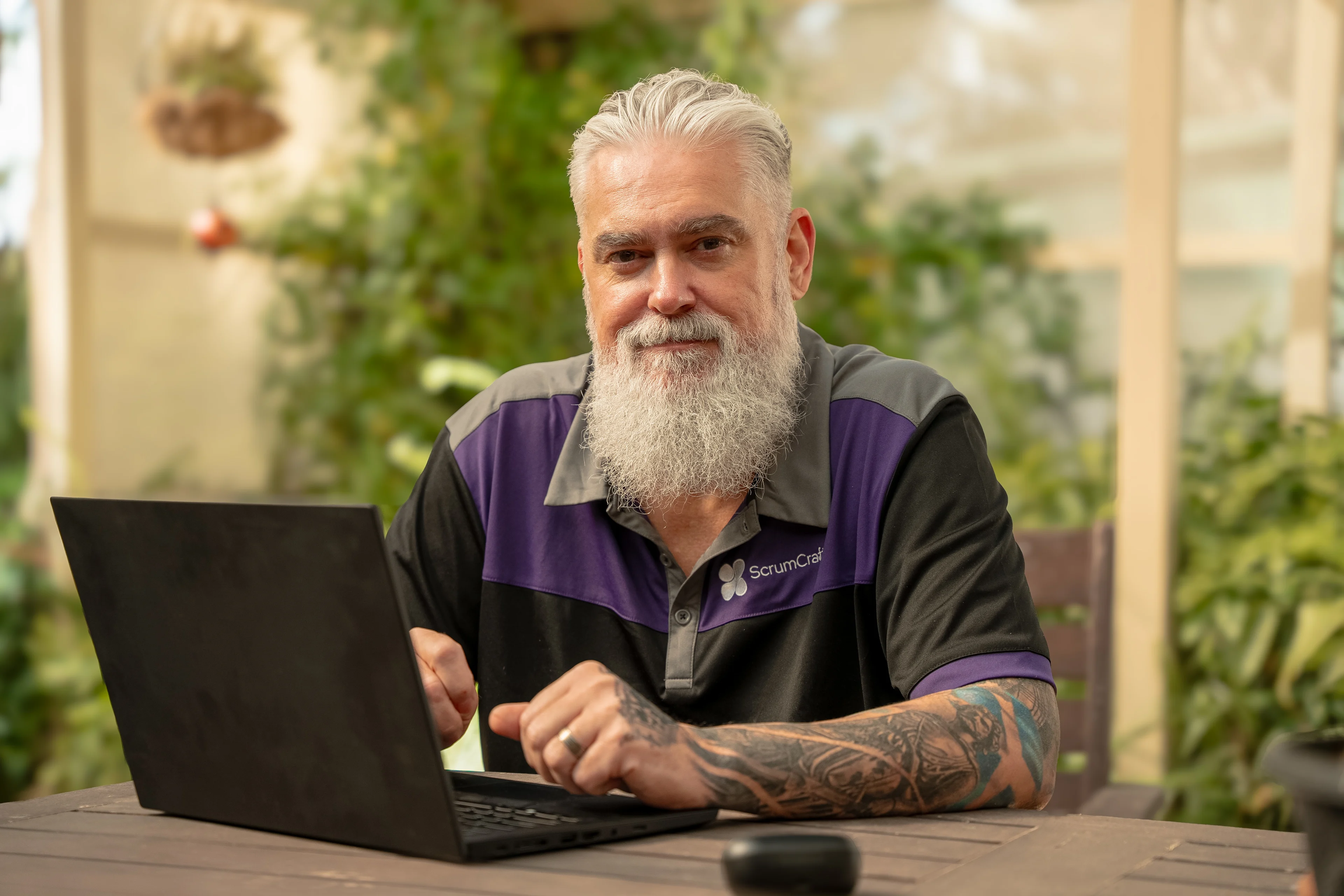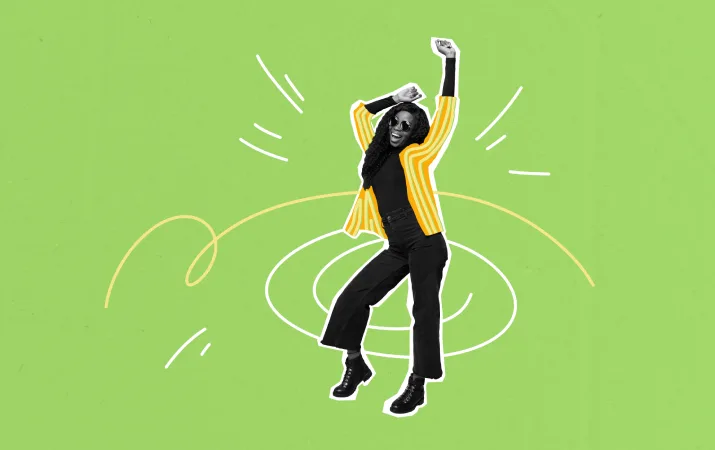Job interview tips a recruiter wants you to know
By Open Universities Australia
Ready to nail your next interview and land that role you've been dreaming about? Check out this advice from recruitment specialist Natasha Hawker, who reveals how to do well in a job interview.
Getting an interview is half the battle when you’re searching for a new role, and you’ve done it. Go you! Now it’s time to convince those hiring that you’re the right fit for the job.
What does it take to make an impression? Natasha Hawker, the director of HR consultancy Employee Matters, believes there are certain things all candidates can do to put their best foot forward.
How to prepare for a job interview
Find out what type of interview you’ll be attending
When the company first reaches out, make sure you ask what kind of interview to expect. Depending on your industry, you may need to prep for:
A screening interview
It’s very common to have an initial call with a recruiter or hiring manager who isn’t the final decision maker. They’ll ask you preliminary questions about your interest in the company and your career goals.
The purpose of this call is to decide whether you should be interviewed by members of your prospective team, but it’s also your chance to decide if you want to move forward with your application.
A one-on-one interview
One-on-one interviews generally take place with a potential manager or peer. You’ll be asked a series of questions about your skills, experience and suitability for the role.
A panel interview
In a panel interview, you’ll be interviewed by several stakeholders, usually senior members of the team. The questions will be more or less the same as they would be in a one-on-one interview, but the panel members will have different areas of interest, so you will need to prepare to cover more ground.
Related reading: What do recruiters look for?
A case study interview
If you’re going for a management or consultancy role, you may be assigned a business problem and asked to present your solution. This kind of interview will involve extra preparation time, plus the use of visual aids.
A technical interview
Common in the engineering, science, IT and publishing industries, a technical interview requires you to demonstrate your skills in a particular area, like coding, design or editing. You may be asked to solve a problem in real-time on a whiteboard or do a test in another room.
Rehearse what you’re going to say
Next, make a list of the questions you think you’ll be asked so you can practice your answers. Doing this instead of reacting on the fly will mean “you’ve done the thinking, and if a question comes up in a similar vein, you’re on the ball, so you’re not going ‘umm…. I’m not sure’,” Natasha explains.
According to Natasha, there are three types of questions you should practice answering: competency, behavioural and cultural questions.
Competency questions
Competency questions look at whether you have the relevant qualifications and experience for the job.
An example competency question:
Tell us about a time when you led a team.
Behavioural questions
Behavioural questions aim to establish how you will respond to challenging situations in the workplace.
An example behavioural question:
Tell me about a time when you had more work than you could possibly handle. What happened, and what did you do? (“They ask this because they know that if they put you in that position, then you’ll likely behave the same way,” Natasha says.)
Cultural questions
Cultural questions look at whether you’re a good fit for the organisation.
An example cultural question:
Tell me about a place where you’ve worked that you really loved. Why did you love it? (“They’re trying to find out if it’s a similar organisation to them,” Natasha explains.)
If you want help figuring out which way your interview will go, try looking the company up on Glassdoor. Past candidates will often share questions they were asked during recruitment.
Do your research on the company
This one is non-negotiable. “It used to frustrate me no end when I would have people turning up for interviews and they hadn’t even bothered to Google us to see what we do,” Natasha says.
Prospective employers want to know you’re as interested in them as they are in you, so do your homework. Don't just read their ‘about us’ page:
Search Google News for recent updates on their business and industry.
Explore what customers are saying on Product Review, Reddit or social media.
Find out who their main competitors are by typing their website into Similar Web.
This will give you plenty of fuel for questions to ask during the interview.
How to stay relaxed and positive during a job interview
Dress to impress
Wondering what to wear to a job interview? “Think about if you were already employed by that company—how would they expect you to present yourself?” Natasha says. It helps to look at photos of employees on the company’s social media channels to see what they typically wear.
When in doubt, stick with smart business attire like dress pants, a shirt or blouse, and a blazer or suit jacket. If your job interview is virtual, still dress as you would if you were there in person, so it doesn’t appear that you’ll slack off when working from home.
Arrive early—but not too early
Aim to get there 15-20 minutes early so you have a buffer if something goes wrong with traffic or public transport.
It’s best not to go into the building too early because you’ll put the interviewer under pressure. Sit in your car or find a spot outside until it’s about five minutes before crunch time, Natasha suggests.
Manage your nerves
One thing you can do while you wait? Go to the bathroom, sit down, and throw your hands up in the air.
“It sounds like a really funny thing to do,” Natasha says, “but whenever anybody wins something, they put their hands up in the air. It puts you in a more confident mood.”
How to sell yourself in a job interview
Be open and conversational
Watch the interviewer’s body language when you talk to ensure you don’t waffle on. And if you don’t have experience or an answer to a question, be honest. Say something like: “I haven’t had that experience, but if I did, this is what I’d do.”
Share honest examples of weaknesses
When the interviewer asks about your weaknesses, “they really want to understand how self-aware you are, and if you’re willing to grow to overcome your limitations,” she explains. It’s best to avoid stock answers like “I’m a perfectionist” because they will see right through this. Instead, come up with sincere examples of areas where you believe you can improve—and explain strides you have made to do so.
For example, you could say:
You’re lacking a certain technical skill—but you’re looking at courses that will help you learn it
You have a fear of public speaking—but you’ve challenged yourself to practice this during team meetings
You’re hesitant about delegating or providing feedback or staying organised—but you’ve introduced habits to help you with this
Share unique examples of strengths
On the flip side, you want to share one or two strengths that demonstrate your unique value as an employee. Avoid answers that are too generic (“I’m great with people”), too modest (“Everything I do well is a team effort”) or arrogant (“Thanks to my leadership I single-handedly transformed the business”). Focus on strengths that caused you to make a noticeable impact in a past role.
For example, you could talk about:
A specific technical skill that helped improve business performance
A soft skill (like attention to detail) that helped improve your relationship with customers
A soft skill (like your ability to solve problems) that had a positive impact on your co-workers
Ask thoughtful questions
It’s totally fine to bring out a notepad with a list pre-prepared questions you want to ask at the end of the interview, Natasha says, because “this shows how interested you are in the role.” Ultimately, this is your chance to get a feel for the role and decide if it’s an organisation you’d like to join, so ask what you really want to know.
Example questions include:
What would a typical day in this role look like?
What are the main challenges I would face?
Do you have hybrid working? If so, how many days a week do you prefer people to be in the office?
Who would I be working with the most on the team? What are their roles?
What do you enjoy about working here?
What to do after a job interview
Reflect on how you went
Get out your phone and jot down a few thoughts on what went well and what didn’t, while it’s still fresh in your mind, Natasha suggests.
“Mark your performance out of ten and think about how you could do better. But just remember interviews take practice, and you get better at them.”
Send a brief thank you email
Wait a day after your interview to send the employer a quick thank you email. This will remind them that you're interested and help you stand out against other candidates who don't show the same consideration. It’s best to do this via email rather than over the phone, so you don’t appear too pushy and the interviewer has time to formulate a response.
If you don’t get the job, it’s okay to follow up again with a request for constructive feedback. While you might dread the answer, this insight can only help when interviewing for your next role.
Read next: How to negotiate a higher salary



